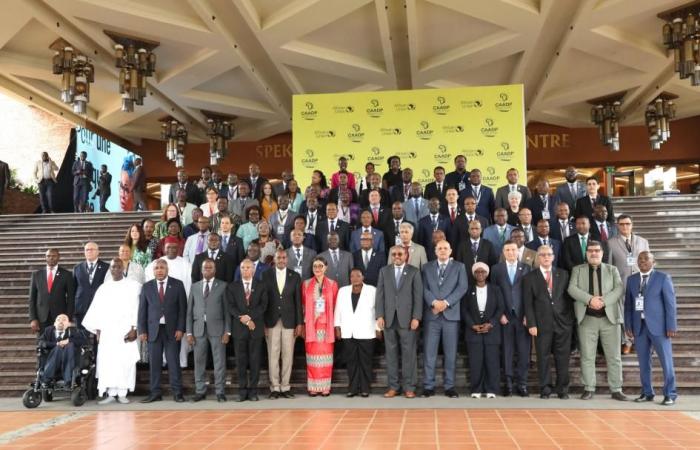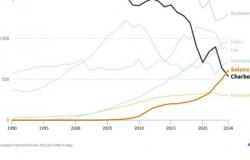
The work of the Comprehensive Program for African Agricultural Development (CAADP) Summit, which concluded on Saturday in Kampala, marked an important step in the quest for agricultural sovereignty and sustainable development in Africa.
This event, under the theme “One Voice, One Earth”, brought together some 2,000 participants, including policy makers, scientists, representatives of civil society and experts from the agricultural sector, who came to discuss the challenges and opportunities linked to African agriculture.
Morocco, faithful to its commitment to South-South cooperation, was represented by a large delegation led by the Minister of Agriculture, Maritime Fisheries, Rural Development and Water and Forests, Ahmed El Bouari. The delegation also included Zakaria El Goumiri, Ambassador of Morocco to the United Republic of Tanzania and the Union of the Comoros, as well as other key officials from the agricultural sector. The Moroccan presence highlighted the Kingdom’s expertise in the areas of irrigation, agricultural resource management and environmental sustainability.
Ambitious commitments for 2035
The Kampala Declaration, adopted at the end of the debates, is an ambitious response to the current challenges of the agri-food sector on the continent. This document, the result of a consensus between the participating countries, sets clear objectives for 2035.
Major commitments include increasing African agri-food production by 45%, reducing post-harvest losses by 50% and tripling intra-African trade in agricultural products. These ambitions reflect a common desire to establish an integrated and resilient agricultural framework, capable of meeting both the needs of local populations and the requirements of international markets.
Technology, investment and sustainability
To achieve these objectives, the Declaration highlights the importance of a favorable policy and regulatory environment. African countries are called upon to integrate these commitments into their national policies, modernize their agricultural strategies and mobilize significant financial resources. A total investment of $100 billion, combining public and private funds, will need to be mobilized to support this transformation.
-Read also|Morocco, a leader in agricultural research
The Declaration also emphasizes the adoption of new emerging technologies, such as biotechnologies, artificial intelligence and digitalization, which are seen as essential levers to increase productivity while respecting sustainability imperatives.
Reduce poverty and ensure food security
In addition to economic objectives, the Declaration aims to halve the number of people living in extreme poverty by 2035. This commitment demonstrates a global approach aimed at linking agricultural development, food security and social progress.
A future driven by regional cooperation
Participants emphasized that this transformation requires a collective effort from governments, regional organizations, private actors and local communities. On the sidelines of the discussions, African farmers were encouraged to adopt innovative practices and modern technologies in order to strengthen the resilience of the sector in the face of climatic and economic challenges.
The CAADP Summit, by adopting the Kampala Declaration, thus opens a new page for African agriculture. This ambitious text reflects a shared vision of a continent capable of taking advantage of its resources and its potential to ensure lasting prosperity. Kampala thus becomes the symbol of a collective desire to make agriculture a pillar of development and sovereignty in Africa.










